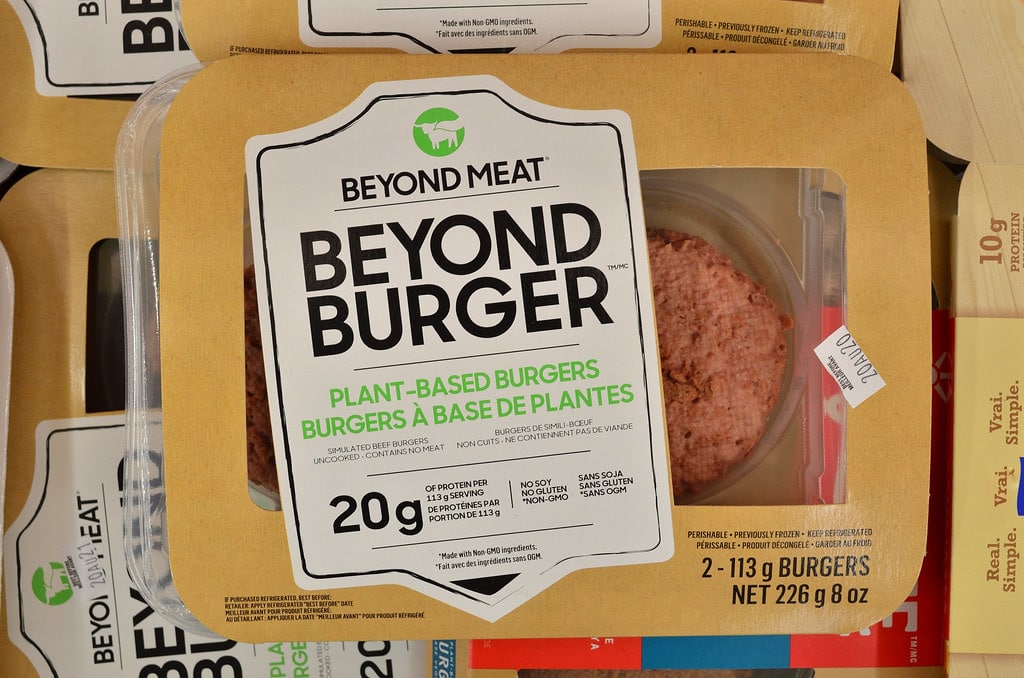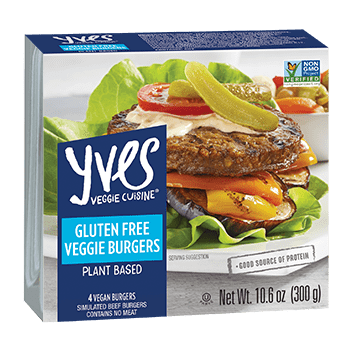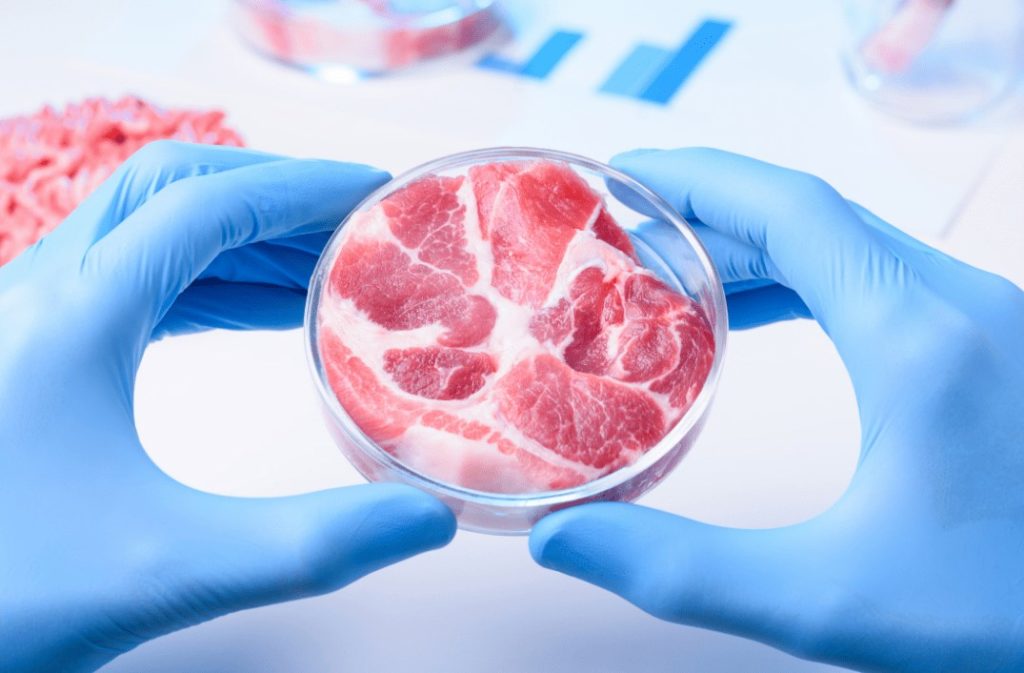
2021, a year filled with the consequences of a novel zoonotic pandemic, has given us a glimpse into a future plagued by similar circumstances. Not to mention, the predictions of global warming and climate change, the occurrence of forest fires, and other natural disasters have been a real eye-opener. The realization of a need for change has spurred ideation and the creation of so many wonderful and innovative green technologies. Companies that could help us shift towards sustainable food production and agriculture. This post shares some of the most interesting, successful, sustainable food trends in 2021, and some new green-food startups to watch for.
- Plant-based meat alternatives
- Sustainable foods made from lab grown meat
- Plant based egg alternatives
- Lab grown egg products
- Sustainable food newcomers to watch for in 2021
Plant-based meat products
Also known as synthetic meat, these products have created quite the stir among the plant-based community, and people looking to reduce their meat consumption and carbon footprint. These products are made to be either cooked at home or ordered and enjoyed at restaurants. As their name suggests, plant-based meat alternatives are products that are created from plants. Some common brands utilize pea protein, tofu, soy, beans, legumes, lentils, the list goes on. I would like to share two of my favourite brands that I think are a must to try!

Beyond meat
Beyond meat has become one of the most go-to brands among consumers. Its likeness to its meat counterpart is uncanny, and the product line is ever-expanding. I find the flavour and texture to be outstanding, and the product is so versatile, that I can use it for a variety of recipes. Currently, beyond meat sells vegan burgers, vegan beef, vegan sausages, and is expanding into vegan chicken tenders. The sausages are incredible, and I haven’t met a meat eater who didn’t like them. Expect to see beyond burgers at fast-food chains like McDonald‘s, KFC, and A&W in 2021!
What about the ingredients? Beyond meat uses Peas as their main plant protein ingredient. This is a great benefit to vegans that have allergies to soy. Other interesting and natural components in Beyond meat, that help the product mimic its meat counterpart, are beet and pomegranate juice. Of course, we know both plants to have a distinctive red colour, and this is what helps to create a product that resembles the colour of meat. Importantly for me, and others with celiac disease, beyond beef, is gluten-free!
One of the best parts of choosing to purchase beyond meat over real beef is the benefit to the environment. Researchers at the University of Michigan did a life cycle assessment of the Beyond burger that was made for Carls Jr., a well-known fast-food chain. They found that this burger alternative generated 90% less greenhouse gas emissions, throughout the full production process. As well, this burger utilized 46% less energy to produce. The comparison in this assessment was to a quarter pound of its animal-beef counterpart.

Yves- Gluten free veggie burger
One other product I would like to mention that is new to the scene for the Yves product line, their gluten-free veggie burger. Yves products are widely available at most grocery stores, and range from deli meats, to hotdogs, burgers, ground-round, and more. Having celiac disease made it next to impossible for me to purchase their products for a long time, since they use wheat gluten in many of them. Recently I found their new gluten-free burgers, and need to give them a shout-out!
Compared to beyond burgers, these aren’t as similar to their meat counterpart, and this may be good for people who aren’t interested in the reminder of eating meat. They are slightly thinner but have an incredible mushroom, umami flavour to them that is great for a burger substitute.
The main ingredient in Yves gluten-free veggie burgers is soy, so for those of you with a soy allergy, this won’t be the product for you. For others, I recommend giving it a try for your next vegan burger cookout!

Sustainable foods from lab grown meat
Lab-grown meat? Yes, it is a thing, and it is an incredible move for a meat-loving society to shift towards more sustainable foods. Imagine, if you could still have real beef in your recipes, but you never contributed to the inhumane treatment animals experience in animal agriculture. Not only that, without the need to actually breed and rear animals for food, we would eliminate the costly carbon footprint from farm animals. This is exactly what some new sustainable food companies are trying to create for you and the planet.
How does this process work? The first step in the process is to extract a small muscle tissue sample from the animal. From this piece of tissue, stem cells are extracted and fed a series of nutrients. These cells grow and generate more muscle tissue in the laboratory. From just one muscle sample, 80,000 quarter pounder burgers can be produced. In fact, the process of producing lab-grown meat takes up 99% less space, and 96% less GHG’s than what is required by cows in animal agriculture.
Since lab-grown meat is new to the market, there are many tweaks to be made. Ensuring the meat has the same fat components and marbling is a pain point most are sorting through. Canadian researchers at Mcmaster university have since found a way to reproduce this fat-marbling in lab-grown tissue. FDA regulation of cultured meat products is also required. The other issue is price. In 2013, when scientists were first coming out with lab-grown meat, the cost was around 325,000$. Currently, some companies are now able to produce lab-grown meat at prices of 11-12$. Price still needs to come to par for consumers to make the switch, but it’s certainly making some lead way.
Here are some sustainable food companies making lab-grown meat
Mosa Meat – First company to make the lab-grown meat burger
Aleph farms – Lab-grown beef steak
Wild type – Lab-grown salmon
Upside foods (formerly Memphis meats) – Lab-grown chicken
SuperMeat– Lab-grown chicken
Bond Pet Foods- Lab-grown chicken protein for dogs and cats

Plant-based egg Alternatives
Just like our favourite meat products, eggs are also one component many have a hard time reducing or switching away from. One of the first plant alternatives to eggs was a modification to our well know and beloved tofu. Some amazing chefs out there found a way to combine tofu, turmeric, and nutritional yeast in such a way that mimicked the flavour and texture of scrambled eggs. Recently, new plant-based products have hit the scene, and you can now buy vegan eggs! There are some interesting products arising from the sustainable food industry that is worth finding out about and trying.
The first product I would like to share is Just Egg. This product comes in liquid form, almost like a raw egg yolk-egg white mixture that is ready to be cooked up. Unlike other products we have discussed in this post, Just egg uses mung bean to make its alternative egg product. Just egg explains that the mung bean is an incredibly sustainable plant food, and especially more sustainable than its chicken counterpart. They also claim that Just egg uses 98% less water, 86% less land, and 93% less co2 emissions.

Lab-grown egg products
Lab-grown egg products are certainly on the way but are more new to us than lab meats, and even dairy. Chicken eggs have become a large component of many recipes around the world. They are a common breakfast food and used in baking to help leaven our bread. What if you could still have the actual chicken egg, but no chicken would have to suffer. On top of that, we could reduce the environmental footprint of the egg industry.
One upcoming company to mention is Clara foods. The Clara process involves using yeast that is engineered to express the proteins found in chickens. These yeasts are fed sugar and some nutrients, and through fermentation (just like in producing beer and wine), the yeast produces the egg proteins. Their lab-grown egg products can be used in baking, nutritional supplements, and just to enjoy as a standalone egg! What I also find interesting, is that these products could be used to replace egg whites that are added as fining agents in winemaking.
sustainable food newcomers to watch for in 2021
Plant-based and even lab-grown meat alternatives are a great way for us all to switch to an eco-friendlier lifestyle. Of course, healthy vegan living can be done without the need for these products, but to satisfy a craving or two, they will certainly help. Keep your eye on these new upcoming green-tech companies that will be making entry into the sustainable food market
1. Air protein– This is an incredible concept, Air protein as its name suggests, takes elements out of the air we breathe. These elements are combined with water, minerals, and a “probiotic production process” to create a sustainable food that has the same nutritional profile as its meat counterpart.
2. Lypid– This newcomer is all about fat! Their product is vegan fat that mimics animal fat. Check out this video that describes the Lypid process.
3. Sundial foods– These entrepreneurs are attacking the plant-based meat alternative industry from a new aspect. They explain that the Sundial foods process relies on non-isolate proteins, which won’t strip the foods of macronutrients or produce excess waste.
4. California cultured– Although their product isn’t an animal alternative, it is another option for people wanting to reduce their carbon footprint from plants that pay a hefty carbon toll. Lab-grown chocolate, yes, it is happening! If you noticed in our post “Food carbon footprint calculator, the CO2 equivalents from producing chocolate are hefty. This company is making sustainable chocolate from plant stem cells, and reducing the carbon footprint significantly.
Check out our other posts on our Sustainable food blog!
Share our post on social media